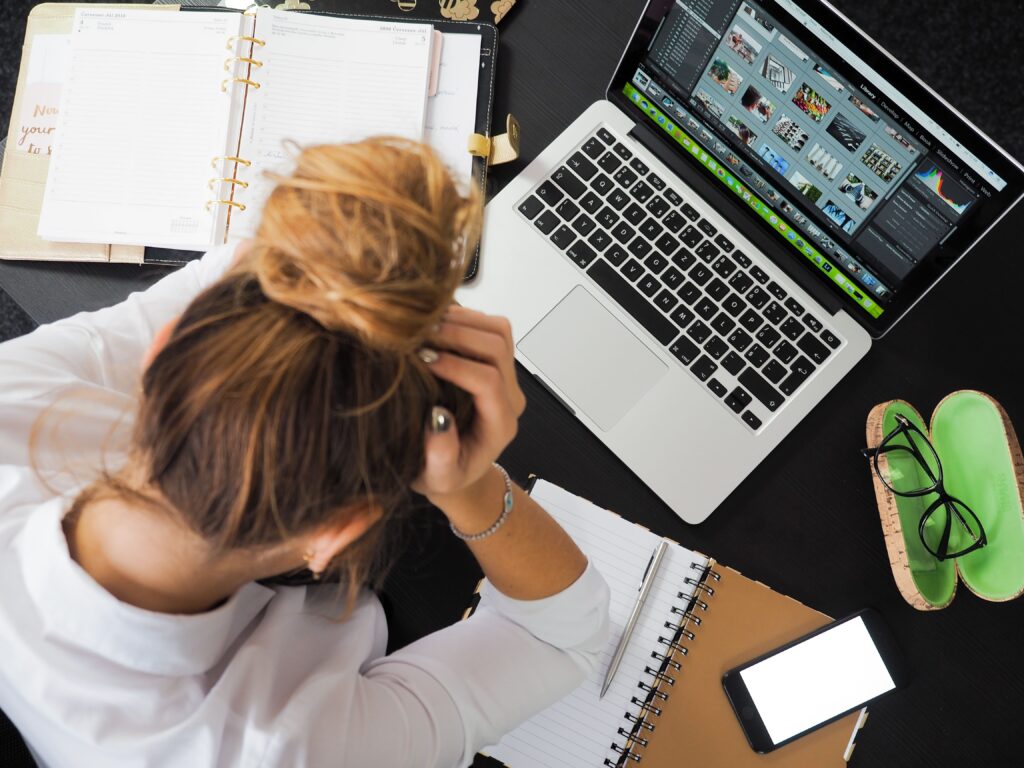Get anxiety support in victoria & Langford B.C.
Conquering Inner Turmoil: Are You Ready For Relief?
Do you ever feel like your mind is constantly racing, stuck in a cycle of ‘what-ifs’ and worst-case scenarios? Anxiety is a common and normal experience, that affects people of all ages, genders, and backgrounds. It is a feeling of worry, nervousness, or unease about something with an unknown outcome. Anxiety can be beneficial in specific circumstances, such as boosting alertness and focus or preventing harm. However, excessive and ongoing worry can cause feelings of overwhelm and can negatively impact daily life. If your nervousness is persistent and impacting your daily life, it may be time to consider seeking professional help. A counsellor or therapist can offer a supportive environment and a tailored treatment plan to assist in managing nervousness and improving overall well-being.
Meet Our Victoria Therapists
Meet Our Langford Therapists
anxiety counselling at neuralive
Meet Our Anxiety Therapists In Victoria
Whether you’re navigating persistent worry, overwhelming stress, or anxious thoughts that feel difficult to control, our team of experienced anxiety therapists in Victoria is here to help. You can book a consultation directly with the therapist of your choice, or if you need guidance, schedule a free consultation with our Intake Team, who can help match you with the right therapist to support your path toward greater calm and well-being.

Reg. Social Worker
Accepting New Clients
Victoria & Online
Specializing in working with children/youth (5+), adults, parents, Indigenous individuals (FNHA); anxiety, depression, relationship struggles, emotional regulation, trauma, grief and loss; infertility, miscarriage, IVF, adoption, and postpartum-related issues.

Reg. Clinical Counsellor
NEW To NeurAlive
Accepting New Clients
Victoria & Online
Specializing in working with youth (12+), adults, couples; ADHD, Anxiety, Depression, Men's Mental Health, Grief, Relationship Issues, Life Transitions, Stress, Self-Esteem, and Coping Skills.

Reg. Clinical Counsellor
Reg. Art Therapist
Accepting New Adult Clients
Waitlist For Children
Victoria & Online
Specializing in working with children, youth, adults, and parents/caregivers; trauma, PTSD/C-PTSD, anxiety, depression, grief and loss, relationship challenges, parenting, life transitions, emotional regulation, and communication.

Reg. Clinical Counsellor
Neurofeedback Practitioner
Accepting New Neurofeedback Clients
Waitlist For Counselling
Victoria & Online
Specializing in working with youth (14+) and adults; trauma, men’s mental health, anxiety, depression, stress, life transitions, relationship issues, shame, self-esteem, emotional regulation, and isolation.

Reg. Clinical Counsellor
Accepting New Clients
Victoria & Online
Specializing in working with youth (16+) and adults; acute and complex trauma, PTSD, anxiety, depression, stress, self-esteem issues, shame, life transitions, career change, emotional regulation, communication skills, ADHD, and borderline personality disorder.

Clinical Supervisor
Reg. Clinical Counsellor
2 Month Waitlist For New Clients
Victoria & Online
Specializing in working with youth (13+), adults, couples, families; trauma (accidents, childhood trauma, violence, vicarious trauma), PTSD/CPTSD, grief & loss, anxiety, OCD, depression, gender identity, and sexual orientation.

Reg. Clinical Counsellor
Not Taking New Clients
Victoria & Online
Specializing in working with adults, couples, parents, and youth (16+); anxiety, depression, self-esteem, ADHD, relationship challenges, parenting, creating families, shame, emotional regulation, and communication skills.

Reg. Clinical Counsellor
Clinical Director
Not Taking New Clients
Victoria & Online
Specializing in working with individuals & couples; relationship challenges, parenting, emotional regulation, communication difficulties, life transitions, self-discovery, and isolation and loneliness.
Meet Our Anxiety Therapists In Langford
Whether you’re struggling with constant worry, anxious thoughts, or stress that feels unmanageable, our team of skilled anxiety therapists in Langford is here to support you. You can book a consultation directly with the therapist of your choice, or if you need guidance, schedule a free consultation with our Intake Team, who can help connect you with the right therapist to support your journey toward greater calm and balance.

Reg. Clinical Counsellor
Certified ADHD Specialist
NEW To NeurAlive
Accepting New Clients
Langford & Online
Specializing in working with youth (16+), adults, men, parents; anxiety, depression, ADHD, stress, burnout, grief/loss, self-esteem, relationship issues, parenting, loss of meaning, aging, life transitions, and adult learners in post-secondary education.

Reg. Clinical Counsellor
Certified ADHD Specialist
NEW To NeurAlive
Accepting New Clients
Langford & Online
Specializing in working with children (10+), youth, adults, parents, immigrants; ADHD, Anxiety, Depression, Substance Use, Grief & Loss, Life Transitions, Neurodivergence, and Trauma.

Reg. Clinical Counsellor
Neurofeedback Practitioner
NEW To NeurAlive
Accepting New Clients
Langford & Online
Specializing in working with youth (13+), adults, and couples; Neurofeedback, Trauma, EMDR, Anxiety, Depression, OCD, Neurodivergence (ADHD, Autism), Relationships, and Life Transitions.

Reg. Clinical Counsellor
Accepting New Clients
Langford & Online
Specializing in working with youth (16+), adults, parents, men and first responders; trauma, anxiety, depression, addictions, men's mental health, ADHD, autism, neurodivergence, disabilities, first responders, attachment disorders, grief/loss, workplace stress, and life transitions.

Reg. Clinical Counsellor
Accepting New Clients
Langford & Online
Specializing in working with youth (16+), adults, and couples; anxiety, depression, shame, trauma, grief/loss, men's mental health, addictions, self-esteem, self-harm, relationship challenges, and life transitions.

Reg. Psychologist
Accepting New Clients
Langford & Online
Specializing in working with youth (14+) & adults; stress, anxiety, depression, emotional imbalances, acute and complex trauma, poor self-concept, relational issues, interpersonal violence, ADD/ADHD, life transitions, and grief and loss.

Reg. Clinical Counsellor
Accepting New Clients
Langford & Online
Specializing in youth (12+), adults, couples, parents and families; trauma, anxiety, depression, emotional distress, men's issues, family violence, conflict resolution, life transitions, ADHD management, grief and loss, and end-of-life.

Reg. Clinical Counsellor
Accepting New Clients
Langford & Online
Specializing in working with children (5+), youth, adults, and parents; play therapy, parenting support, ADHD, Autism, relationship challenges, stress, trauma, mood/personality disorders, grief/loss, anxiety, depression, emotional regulation, communication skills, and life transitions.

Reg. Clinical Counsellor
Certified ADHD Specialist
1-2 Month Waitlist For New Clients
Langford & Online
Specializing in working with youth (12+), adults, families; anxiety, ADHD, OCD, stress, self-esteem development, self-discovery, relationship and interpersonal issues, emotion dysregulation, communication skills, LGBTQ2S+ & gender identity support, and adolescent behavioural challenges.

Master's Student Intern
Accepting New Clients
Langford & Online
Offering low-cost services to youth (12+), parents, adults, couples, elders, LGBTQ2S, and BIPOC related to childhood trauma in adults, anxiety/climate change anxiety, depression, grief and loss, mind-body connection, habit and behaviour evolution, emotional regulation, and neurodivergence.
Recognizing The Face Of Fear: What Does Anxiety Look Like?
Some Of The Most Common Effects Of Anxiety Include:
Physical Symptoms:
Nervousness can manifest as physical symptoms, including increased heart rate, sweating, trembling, muscle tension, headaches, and digestive problems. These symptoms can sometimes become so intense that they impact daily life and quality of life.
Emotional Turmoil:
Worry, fear, nervousness, and unease can be persistent and overwhelming, causing emotional distress that can affect daily activities and relationships. This can lead to feelings of hopelessness, frustration, and low self-esteem.
Cognitive Difficulties:
Nervousness can also impact thinking and decision-making abilities, causing symptoms such as difficulty concentrating, memory problems, indecisiveness, and negative thought patterns.
Daily Life Disruption:
Nervousness can interfere with daily activities such as work, school, or relationships, leading to feelings of isolation and frustration.
Sleep Disturbance:
Chronic worry can also disrupt sleep, causing difficulties falling asleep, staying asleep, or waking up feeling rested. This can result in fatigue, decreased energy levels, and decreased ability to manage daily activities.
Increased Risk Of Mental Health Issues:
Chronic nervousness can increase the risk of developing other mental health issues, such as depression, substance abuse, and eating disorders.
Unlocking The Mystery Of Nervousness: What Triggers Those Worrying Thoughts?
Understanding Your Mental health
Anxiety is a complex and multi-faceted experience that can be caused by a range of psychological, emotional, and environmental factors. Some of the most common causes of anxiety include genetics and brain chemistry, traumatic experiences, and stress/pressure from daily life.
For individuals with a genetic predisposition to anxiety, their symptoms may be triggered by stress or other environmental factors. For others, feelings of worry, nervousness, or unease may stem from traumatic experiences in childhood such as abuse, neglect, or bullying. Additionally, stress and pressure from work, school, relationships, and other aspects of daily life can also contribute to symptoms of anxiety. It is important to note that anxiety can also result from a combination of factors, and each individual’s experience is unique. Understanding the causes of anxiety can be the first step in developing an effective treatment plan and finding relief from its effects.
What Does Anxiety Feel Like?
The Physiological Basis Of Nervousness & Worry
Anxiety involves a complex interplay between the brain and the body. When a person experiences anxiety, the brain activates the “fight or flight” response, which is a natural survival mechanism that prepares the body to respond to perceived danger. This response is triggered by the release of stress hormones, such as adrenaline and cortisol, from the adrenal glands.
During the fight or flight response, the body undergoes physical changes that prepare it for action. The heart rate increases, blood is redirected to the muscles, and breathing becomes shallow and rapid. This is designed to provide the body with the energy and oxygen needed to respond to a threat.
In the case of anxiety, the fight or flight response is activated in response to perceived threats that are not physically dangerous. This can result in physical symptoms such as increased heart rate, sweating, trembling, and muscle tension, which can be distressing and interfere with daily activities.
In addition to the physical changes that occur during the fight or flight response, anxiety can also impact the brain and the nervous system. The release of stress hormones can cause changes in brain chemistry, leading to increased activity in the amygdala, which is part of the brain responsible for processing emotions. This increased activity can result in persistent worry and nervousness and interfere with memory, concentration, and decision-making abilities.


get counselling support in victoria & Langford B.C.
How Can Anxiety Counselling Help?
Despite its prevalence, anxiety is still often stigmatized and misunderstood. Many people feel ashamed or embarrassed about their feelings and may avoid seeking help or support. This can lead to feelings of isolation and hopelessness and can exacerbate symptoms of anxiety. It is important for people with anxiety to understand that their feelings are normal and that they are not alone.
A therapist can play a crucial role in helping individuals with anxiety. By providing a safe and supportive environment, a therapist can help individuals understand their anxiety and develop coping strategies.
In counselling, individuals can learn about the causes and triggers of their anxiety and work with their therapist to develop a personalized treatment plan. Therapists can teach individuals a range of coping strategies, including relaxation techniques, mindfulness, and cognitive-behavioral therapy (CBT). In addition to teaching coping strategies, anxiety counselling can also help individuals identify and address any underlying issues that may be contributing to their anxiety.
Additional Support
Neurofeedback For Anxiety At NeurAlive
In addition to counselling, we also offer neurofeedback brain-training, a break-through intervention for anxiety that uses technology to harness the innate capacity of the brain to heal itself. Neurofeedback has been in existence for over 60 years and has been extensively researched for its positive effects on a range of issues. Neurofeedback helps to relieve anxiety right at the source – in the nervous system.
Administered by our Registered Clinical Counsellors and reimbursable by most extended health benefits plan, neurofeedback takes advantage of the brain’s neuroplasticity, or ability to rewire itself for optimal functioning. Since 2015, we have helped countless individuals, both children and adults, to experience freedom from anxiety through neurofeedback brain-training.
FAQ
Frequently Asked Questions
How Can Counselling Help With Anxiety?
Counselling can be highly effective in helping individuals cope with anxiety. A counsellor can provide a safe and supportive space for you to explore the root causes of your anxiety and understand how it affects your thoughts, emotions, and behaviours. Through evidence-based therapeutic approaches like cognitive-behavioural therapy (CBT), the counsellor can help you challenge negative thought patterns, identify triggers, and develop healthier coping mechanisms. They may also teach relaxation techniques and mindfulness exercises to manage anxiety symptoms. Counselling allows you to gain insights into your anxiety, learn practical strategies to manage it, and build resilience to face life’s challenges with increased confidence and reduced distress. The counsellor can tailor the therapy to your unique needs, helping you regain control over your life and experience a greater sense of emotional well-being.
What Should I Expect In An Anxiety Counselling Session?
In an anxiety counselling session, you can expect a warm and supportive environment where you can openly discuss your thoughts, feelings, and concerns related to anxiety. The counsellor will actively listen to your experiences and work collaboratively with you to understand the root causes and triggers of your anxiety. They will help you identify any negative thought patterns contributing to anxiety and offer practical strategies to challenge and reframe these thoughts. Throughout the session, the counsellor may introduce relaxation techniques and mindfulness exercises to help you manage anxiety symptoms. They will tailor the counselling approach to your specific needs and preferences, ensuring that you feel comfortable and engaged in the therapeutic process. As you progress through counselling, you can expect to gain insights into your anxiety, develop coping skills, and build the confidence to face anxiety-provoking situations with greater ease and resilience.
Can Counselling Be Effective In Managing Anxiety Without Medication?
Whether or not you will need to take medication for anxiety depends on the severity and individual characteristics of your condition. In some cases, a combination of counselling and neurofeedback provides the most effective treatment for anxiety. In counselling, many individuals find relief from anxiety symptoms through various therapeutic approaches offered in counselling, such as cognitive-behavioural therapy (CBT), mindfulness-based techniques, and relaxation exercises. These evidence-based therapies help individuals challenge negative thought patterns, develop coping skills, and learn to manage anxiety more effectively. Counselling provides a safe and supportive space for exploring the root causes of anxiety and developing personalised strategies to address specific triggers and concerns. Then again, those who use neurofeedback either alone or in conjunction with counselling often see the most benefit. In many cases, it’s essential to work closely with your medical doctor or psychiatrist who can evaluate your specific situation and develop a personalised treatment plan tailored to your needs
What Qualifications And Experience Do Your Counsellors Have In Treating Anxiety?
Our counsellors who specialise in treating anxiety hold a minimum of a master’s degree in counselling, psychology, or a related field. They have received specialised training and certifications in anxiety treatment and therapeutic techniques, such as cognitive-behavioural therapy (CBT), which is widely used for anxiety. Our counsellors have experience working with clients specifically dealing with anxiety disorders. They possess a deep understanding of the various forms of anxiety and their impact on mental health and daily functioning. Additionally, they are skilled in identifying triggers and thought patterns that contribute to anxiety and providing practical strategies to manage symptoms effectively. Still, it is important to inquire about their qualifications, credentials, and experience in treating anxiety to ensure they have the expertise and knowledge needed to provide effective support and guidance for your specific anxiety-related concerns.
How Will Counselling Address My Specific Anxiety Symptoms And Triggers?
Counselling will address your specific anxiety symptoms and triggers by providing a safe and supportive space to explore and understand the underlying causes of your anxiety. A qualified therapist will work with you to identify the unique factors contributing to your anxiety, such as past experiences, thought patterns, or stressors. Through various therapeutic techniques, such as cognitive-behavioural therapy (CBT) or mindfulness exercises, they will help you develop coping strategies and practical tools to manage your symptoms effectively. Additionally, counselling will focus on building resilience and promoting self-awareness, empowering you to navigate and confront your triggers with greater confidence and control. The ultimate goal is to foster a sense of emotional well-being and equip you with the skills needed to lead a more fulfilling and anxiety-free life
Can Counselling Help With Panic Attacks Or Severe Anxiety Episodes?
Yes, counselling can be highly beneficial in helping individuals cope with panic attacks and severe anxiety episodes. A trained therapist can assist in understanding the root causes and triggers of these intense feelings, providing tools and techniques to manage and reduce the frequency of such episodes. Cognitive-behavioural therapy (CBT) is a common approach used to address panic attacks and severe anxiety. It focuses on identifying and challenging negative thought patterns and behaviours, replacing them with healthier coping strategies. Moreover, counselling can offer a safe space for individuals to express their emotions, fears, and concerns, while receiving validation and support. By working collaboratively with a therapist, individuals can gain a better understanding of their anxiety, learn how to control it, and ultimately improve their overall well-being and quality of life.
How Can Counselling Assist In Developing Coping Strategies For Anxiety?
Counselling can play a crucial role in developing coping strategies for anxiety by providing personalised guidance and support. A trained therapist will work closely with you to identify the specific triggers and patterns of your anxiety, tailoring the coping strategies to suit your individual needs. Through various therapeutic techniques, such as cognitive-behavioural therapy (CBT), mindfulness practices, or relaxation exercises, counselling helps you gain insight into your thoughts and emotions, enabling you to challenge negative beliefs and responses. Additionally, counselling fosters a safe and non-judgmental environment where you can explore your feelings and fears, gradually building resilience and self-awareness. As you progress in therapy, you will learn practical tools to manage stress, regulate emotions, and face anxiety-inducing situations with increased confidence, ultimately empowering you to lead a more balanced and fulfilling life.
Will I Learn Relaxation Techniques Or Mindfulness Practices In Counselling?
Yes, in counselling, you are likely to learn relaxation techniques and mindfulness practices to help manage anxiety and promote overall well-being. Many therapists incorporate these evidence-based practices into their treatment approach to address stress and anxiety effectively. Relaxation techniques, such as deep breathing exercises, progressive muscle relaxation, and guided imagery, can help calm the mind and body, reducing physical symptoms of anxiety. Mindfulness practices involve focusing on the present moment without judgement, which can enhance self-awareness, reduce rumination, and improve emotional regulation. These techniques are valuable tools that can be learned and practised during counselling sessions and integrated into your daily life to enhance coping with anxiety and promote a sense of balance and calm.
Can Counselling Help Me Understand The Root Causes Of My Anxiety?
Yes, counselling can be instrumental in helping you understand the root causes of your anxiety. A skilled therapist will work with you to explore your thoughts, feelings, and past experiences that may contribute to your anxiety symptoms. Through a process of open and non-judgmental communication, the therapist can help uncover underlying factors such as past traumas, unresolved emotions, negative thought patterns, or significant life changes that may be contributing to your anxiety. Gaining insight into these root causes can be transformative, as it allows you to better understand yourself, your triggers, and how your anxiety manifests. With this newfound awareness, you can work collaboratively with your therapist to develop targeted strategies and coping mechanisms to address the root causes and effectively manage your anxiety.
How Often Should I Attend Anxiety Counselling Sessions?
The frequency of anxiety counselling sessions can vary depending on individual needs and the severity of your anxiety. Typically, at the beginning of therapy, it’s common to have more frequent sessions, such as once a week. This frequency allows you and your therapist to establish a strong therapeutic relationship, identify key concerns, and develop initial coping strategies. As progress is made and you feel more equipped to manage your anxiety, the frequency of sessions may decrease to bi-weekly or monthly. However, the decision to adjust session frequency is flexible and depends on your comfort level and ongoing therapeutic goals. Remember, open communication with your therapist is crucial, and together, you can determine the most suitable session schedule to support your mental health journey effectively.














